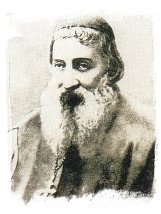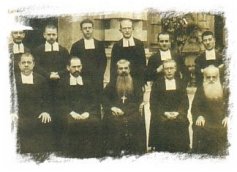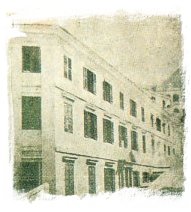 |
| His Excellency the late Bishop Raimondi
1st Bishop of Hong Kong |
The dawn of the history of the
Catholic Church in Hong Kong almost coincides with the foundation
in the Island of a British Crown Colony. The Procurator-General
of the Propaganda Fide in Macao, Father Theodore Joset, was
transferred to Hong Kong, 22o' April 1841, and appointed Prefect
Apostolic, with jurisdiction on the Island and the territory
around it within a radius of eighteen miles. Then in 1S45,
a number of Portuguese began to desert Macao to find a living
in Hong Kong, and they formed the nucleus of a Catholic population
deeply attached to the faith of their forefathers. Here, as
elsewhere, the Church did not falter in her mission of "teaching
all nations", and from the outstart the ecclesiastical
authorities took in hand the organization of Catholic Schools.
These schools, however, for lack of support, did not flourish,
so that when in 1858 the Fathers of the Foreign Missions of
Milan first arrived in Hong Kong, the work of religious education
was nonexistent; but Providence just then sent to the scene
a man of an all-encompassing zeal and indomitable energy:
Father Timoleone Raimondi.
 |
| The Community of St.
Joseph's College 1921 |
In 1860 he opened in Staunton
Street a school for European children, which began to supply
the local offices with English-speaking Portuguese clerks,
and in 1864 a commercial school, St. Saviour's College, was
started.
 |
| The Old Catholic Cathedral |
The zealous
Prefect Apostolic however, was not content until he had secured
the services of a religious congregation for his schools:
he felt that this alone could afford them a pledge of eKciency
and continuity. The immediate needs of urban centres were
far more important than the insignificant Catholic settlement
of Hong Kong and that had to be satisfied first. On the 17"
November 1874, Mgr. Raimondi was made Bishop of Acanthus and
Vicar- Apostolic of Hong Kong.His consecration took place
five days later, 22"'November. The new Bishop soon left
Rome for his mission, now dearer to him than ever, and was
solemnly received at the Cathedral on 19" January 1875,
amid the general enthusiasm of the Catholic population and
the respectful sympathy of all the religiously-minded people
in the Colony.
|

